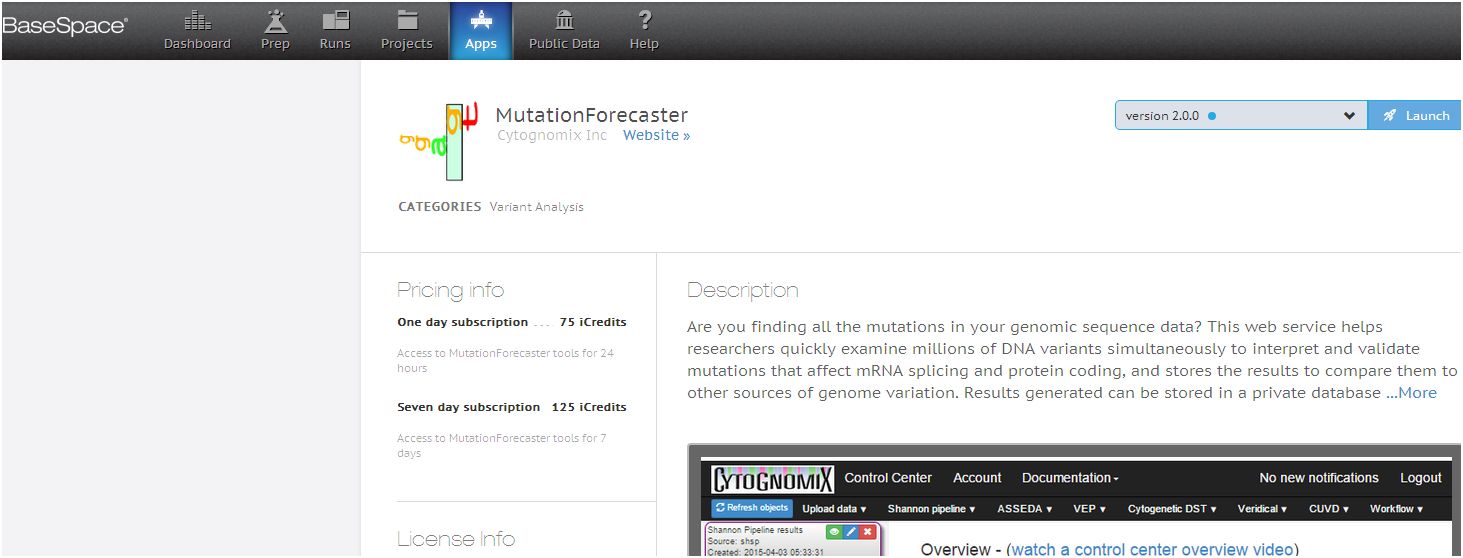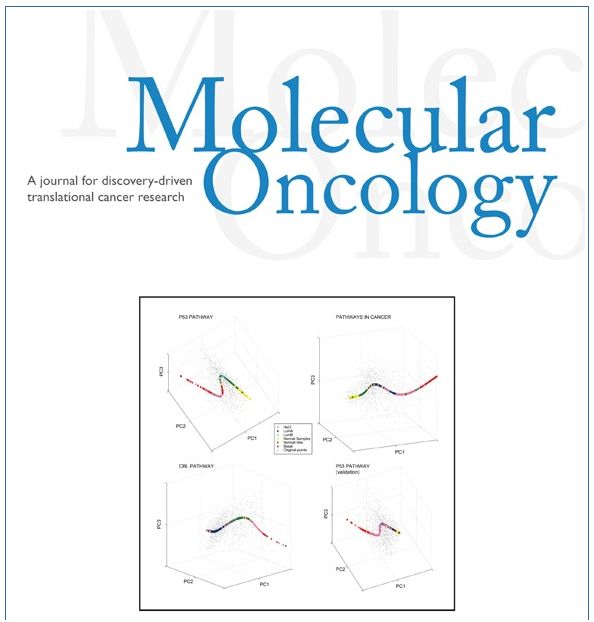Peter Rogan and Katherina Baranova were interviewed by Jan Sims about the use of artificial intelligence in predicting response to breast cancer treatment on CTV on Friday September 25 , 2015: Link
Monthly Archives: September 2015
Sept. 18, 2015. Press release about chemotherapy resistance paper
Western University hopes to use artificial intelligence to improve breast cancer patient outcomes.
(http://mediarelations.uwo.ca/2015/09/18/researchers-at-western-university-hope-to-use-artificial-intelligence-to-improve-breast-cancer-patient-outcomes/, other links at end of post)
Western University researchers are working on a way to use artificial intelligence to predict a patient’s response to two common chemotherapy medications used to treat breast cancer – paclitaxel and gemcitabine.
Peter Rogan, PhD, and a team of researchers, including Stephanie Dorman, PhD, and Katherina Baranova, BMSc, at Western’s Schulich School of Medicine & Dentistry, are hoping to one day remove the guesswork from breast cancer treatment with this technique.
Based on personal genetic analysis of their tumours, patients with the same type of cancer can have different responses to the same medication. While some patients will respond well and go into remission, others will develop a resistance to the medication.
Identifying the genetic factors which lead to resistance or remission can help develop better targeted, individualized treatment regimens with better patient outcomes.
“Treating patients with therapies that are the most likely to be successful can help reduce unnecessary toxicity and improve overall outcomes,” said Dorman.
Rogan and Joan Knoll, PhD, professor, Schulich Medicine & Dentistry, began by defining a stable set of genes in 90 per cent of breast cancer tumours in 2012.
Beginning with 40 genes including several stable genes, the team then used artificial intelligence combined with data from cell lines and tumour tissue from cancer patients who had treatment with at least one of the medications to narrow down and identify the genetic signatures most important for determining resistance and remission for each medication. Their study has recently been published in the journal, Molecular Oncology.
Using the data, the researchers were able to identify the 84 per cent of women with breast cancer who would go into remission in response to the drug paclitaxel. The genetic signature identified for the drug gemcitabine was able to predict remission using preserved tumour tissue with 62 to 71 per cent accuracy.
Now, with this data in hand, the researchers are working to further refine the genetic signatures and improve the predictions further.
“Artificial intelligence is a powerful tool for predicting drug outcomes because it looks at the sum of all the interacting genes,” said Rogan, professor in the departments of Biochemistry, Oncology and Computer Science, Canada Research Chair in Genome Bioinformatics and president, Cytognomix Inc. “If we can use this technology to improve our knowledge of which medications to use, it could improve patient outcomes. The earlier we treat a patient with the most effective medication, the more likely we can effectively treat or possibly even cure that patient.”
###
Reference: Dorman SN, Baranova K, Knoll JH, Urquhart BL, Mariani G, Carcangiu ML, Rogan PK. Genomic signatures for paclitaxel and gemcitabine resistance in breast cancer derived by machine learning. Mol Oncol. 2015 Aug 22. pii: S1574-7891(15)00146-5. doi: 10.1016/j.molonc.2015.07.006. [Epub ahead of print] http://www.moloncol.org/article/S1574-7891%2815%2900146-5/fulltext
MEDIA CONTACT: Tristan Joseph, Media Relations Officer, Schulich School of Medicine & Dentistry, Western University, 519-661-2111 ext. 80387, c: 519-777-1573, tristan.joseph@schulich.uwo.ca
ABOUT WESTERN
Western delivers an academic experience second to none. Since 1878, The Western Experience has combined academic excellence with life-long opportunities for intellectual, social and cultural growth in order to better serve our communities. Our research excellence expands knowledge and drives discovery with real-world application. Western attracts individuals with a broad worldview, seeking to study, influence and lead in the international community.
ABOUT THE SCHULICH SCHOOL OF MEDICINE & DENTISTRY
The Schulich School of Medicine & Dentistry at Western University is one of Canada’s preeminent medical and dental schools. Established in 1881, it was one of the founding schools of Western University and is known for being the birthplace of family medicine in Canada. For more than 130 years, the School has demonstrated a commitment to academic excellence and a passion for scientific discovery.
Follow Western Media Relations online:
Website: http://communications.uwo.ca/media/
RSS: http://feeds.feedburner.com/MediaWesternU
Twitter: https://twitter.com/mediawesternu
Links to story:
(http://www.eurekalert.org/pub_releases/2015-09/uowo-wuh091815.php,
http://www.1069thex.com/2015/
http://medicalxpress.com/news/2015-09-artificial-intelligence-breast-cancer-patient.html,
http://u-s.news/researchers-hope-to-use-artificial-intelligence-to-improve-breast-cancer-patient-outcomes,
http://linkis.com/eurekalert.org/Western_University_h.html,
http://jerseytribune.com/2015/09/18/western-university-hopes-to-use-artificial-intelligence-to-improve-breast-cancer-patient-outcomes/,
http://www.dotmed.com/news/story/27121,
http://www.sciencenewsline.com/summary/2015091817530026.html,
http://www.demanjo.com/news/health/5084082/western-university-hopes-to-use-artificial-intelligence-to-improve-breast-cancer-patient-outcomes.html,
http://danhartshorn.com/2015/09/researchers-hope-to-use-artificial-intelligence-to-improve-breast-cancer-patient-outcomes/,
http://www.bioportfolio.com/news/article/2463671/Western-University-hopes-to-use-artificial-intelligence-to-improve-breast-cancer-patient.html,
http://scifeeds.com/news/western-university-hopes-to-use-artificial-intelligence-to-improve-breast-cancer-patient-outcomes/,
http://www.biospace.com/news_story.aspx?StoryID=391867&full=1,
http://breastcancer.einnews.com/article__detail/287108153-western-university-hopes-to-use-artificial-intelligence-to-improve-breast-cancer-patient-outcomes?vcode=XIbw,
https://twitter.com/cambridgepharma,
http://www.newslocker.com/en-uk/news/science/western-university-hopes-to-use-artificial-intelligence-to-improve-breast-cancer-patient-outcomes/,
http://gadgets.ndtv.com/science/news/artificial-intelligence-could-improve-breast-cancer-treatment-742015,
http://www.news-medical.net/news/20150919/Artificial-intelligence-may-improve-outcomes-in-breast-cancer-patients.aspx,
http://odishasamaya.com/news/artificial-intelligence-may-be-the-antidote-to-breast-cancer/55895,
http://focusnews.com/lifestyle/artificial-intelligence-could-improve-breast-cancer-treatment/127603/,
http://www.thehansindia.com/posts/index/2015-09-20/Artificial-intelligence-could-improve-breast-cancer-treatment-176708,
http://www.freepressjournal.in/artificial-intelligence-could-improve-breast-cancer-treatment/,
http://www.thehealthsite.com/news/a-new-way-to-gauge-breast-cancer-drug-efficacy-on-the-cards/,
http://www.dailypioneer.com/health-and-fitness/artificial-intelligence-could-improve-breast-cancer-treatment.html,
http://timesofindia.indiatimes.com/life-style/health-fitness/health-news/Artificial-intelligence-could-improve-breast-cancer-treatment/articleshow/49024103.cms,
http://zeenews.india.com/news/health/health-news/artificial-intelligence-could-improve-breast-cancer-treatment_1799356.html,
http://www.canindia.com/2015/09/artificial-intelligence-could-improve-breast-cancer-treatment/,
http://www.daijiworld.com/news/news_disp.asp?n_id=355231,
http://www.business-standard.com/article/news-ians/artificial-intelligence-could-improve-breast-cancer-treatment-115091900215_1.html,
http://www.newkerala.com/news/2015/fullnews-122242.html,
http://www.healthcanal.com/cancers/breast-cancer/67107-researchers-at-western-university-hope-to-use-artificial-intelligence-to-improve-breast-cancer-patient-outcomes.html,
http://www.exchangemagazine.com/morningpost/2015/week38/Monday/15092106.htm,
https://www.facebook.com/breastcancersocietyofcanada?fref=nf,
http://www.medicaldaily.com/artificial-intelligence-may-be-able-predict-remission-or-resistance-certain-drugs-353628,
http://www.gizmag.com/machine-learning-predicts-breast-cancer-treatment-responses/39510/,
http://www.sciencecodex.com/artificial_intelligence_to_improve_breast_cancer_patient_outcomes-165300,
http://www.dqindia.com/can-artificial-intelligence-be-used-to-improve-breast-cancer-treatment/,
http://www.science20.com/news_articles/artificial_intelligence_to_improve_breast_cancer_patient_outcomes-157221,
http://geekview.baijia.baidu.com/article/179752,
http://md.tech-ex.com/2015/news/oversea/41383.html,
http://www.cnbeta.com/articles/432439.htm)
September 11, 2015. Final version of paclitaxel and gemcitabine chemotherapy signature paper now published
September 7, 2015. Video presentation of Molecular Oncology article on chemotherapy response
We have published a video synopsis of :
Genomic signatures for paclitaxel and gemcitabine resistance in breast cancer derived by machine learning. Stephanie N. Dorman, Katherina Baranova, Joan H.M. Knoll, Brad L. Urquhart, Gabriella Mariani, Maria Luisa Carcangiu, Peter K. Rogan. Molecular Oncology, in press. DOI: http://dx.doi.org/10.1016/j.molonc.2015.07.006


